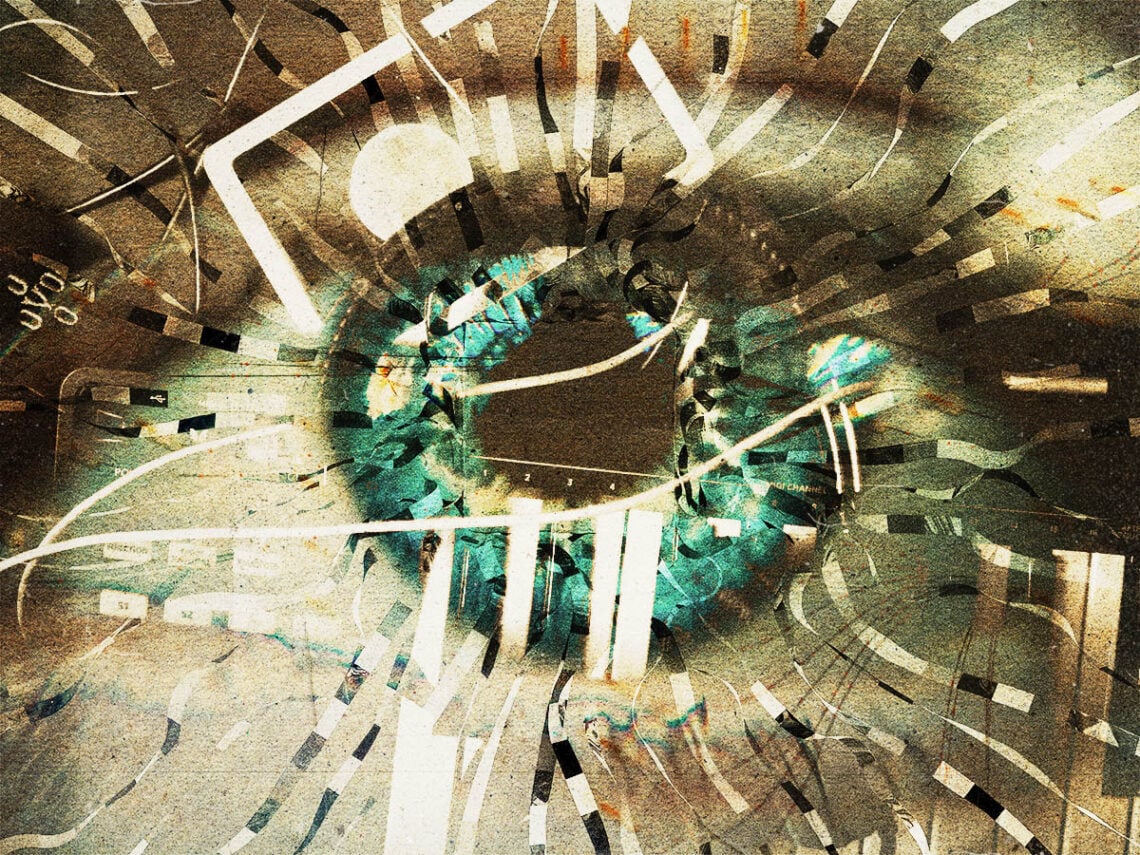
(Credits: Far Out / Google Deep Mind / Ion Fet)
The concept of Artificial intelligence (AI) has been around since Alan Turing’s codebreaking years during World War II but has flared in global discourse over the past few years. Suppose Robert Patrick’s T-1000 robot in Terminator 2 and Robin Williams’ affable Bicentennial Man define the bounds of perception possible for AI technology. In that case, I’m afraid to say the majority of modern society is stationed towards the liquid metal killing machine side of the spectrum.
Most sceptics do not intend to suggest that intelligent cyborgs will soon sweep the land, wreaking havoc in major cities and burning fertile land to cinders. Instead, we fear a more insidious infiltration of cloak-and-dagger software that threatens to leapfrog vast workforces, both inside and outside the creative industries. Without due consideration and safeguarding, a rising global population could endure mass unemployment and the gradual demise of human creativity.
The worst-case scenario is a pretty bleak image to behold, and the misery doesn’t stop here, I’m afraid. Even if we circumvent these existential threats, it is easy to imagine a human race strangled by sloth. One of our finest modern dystopias, Disney-Pixar’s WALL-E, forewarned mass indolence induced by advanced technology that relieves humans of all necessary activity. Worldwide, adult obesity has more than doubled since 1990, suggesting this future is closer than previously thought.
After watching films like WALL-E, it is difficult to imagine that AI could have any benefits with regard to isolation, inertia and mental health. The Covid-19 pandemic gave us a glimpse of the isolated lifestyles that technological advancements threaten to impose on a more permanent basis. Many businesses realised the cost-cutting benefits of working from home (WFH) contracts, not to mention the pollution and carbon footprint-related benefits of isolation.
With ticket prices soaring, grassroots venues closing, and artists alienated, a future of virtual reality U2 concerts from the comfort of your sofa isn’t an intangible prospect. “Save money on transport and tickets and allow soft furnishings and social media to massage your social ineptitude and compound your mental health issues,” one can imagine reading in a Black Mirror synopsis. Indeed, the Netflix series has addressed similar horrors, but will we allow such a future to creep up on us?
If my ramble so far has served to depress you, I apologise, but I broach the topic with a ray of light for the future’s tunnel. After mulling this topic over for several months, I came to the conclusion that humans deserve more credit. If AI encroaches upon our lives as the nefarious spectre we fear, deceiving our judgement of reality, a majority who value emotional and personal creativity will revolt.
I don’t necessarily envisage pitchforks and picket lines, but I imagine these revolutionists will pine for the assurances of live performance. I contacted an AI expert and Audiosocket CEO, Jennifer Anderson-Miller, for some professional insight into the conundrum. “It is likely that AI music will also increase the demand for human-created and curated music, leading to even more interest in live performance and artist engagement,” she says in support of my position.
Anderson-Miller opined that, as the “floodgates open” and our streaming services become inundated with “mediocre AI music,” our option to “listen to one song over another will be a differentiator”. She argues that, although AI robots can mimic humans, they are not apt to substitute human creativity and connection. “In this digital era, the growing importance of human engagement is evident, indicating that AI cannot replace the value of humanity,” Anderson-Miller adds.
It is refreshing to think that if Drake’s formulaic RnB bilge can be simulated at the push of a button, human-created art will defy banal convention by necessity. Anderson-Miller concedes that “As with any disruptive technology, some artists will lose their jobs and income as AI-generated music replaces the need for certain types of stock/underscore music.” On the other hand, “many artists will adapt and benefit from these tools, as they have with previous technologies,” she offers.
As we square up to an uncertain future, we can be comforted by the conviction that humanity is intelligent enough to foresee dystopian hurdles. Throughout history, money has invariably worn a path of immediate gain and least resistance, but as consumers, we can help dictate the future of the creative arts. Assuming streaming services want to secure our ongoing business, they should understand the value of true art to humanity and offer AI-free subscription plans or, at the very least, label material accordingly. If they don’t, there may be hell to pay.
